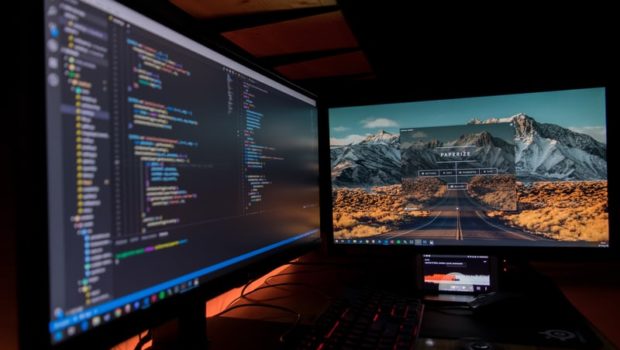Alexis Kennedy on Creating Web-Based Games
One of the most frequently asked questions Weather Factory co-founder Alexis Kennedy gets sounds simple, but isn’t easy to answer: “How did you get into games?”
In his words, his path wasn’t just unconventional – it was also unrecommendable.
His journey began in the summer of 2009. With his daughter due to be born in August, in June, he decided that he needed to get a game made – and to make it fast.
He was on sabbatical from his employer and had enough savings for himself and his wife, Ana to live on for the next six months, giving him time and some resources. However, they had no source of income as Ana was in the process of completing her MA, no funding, no proven skills as a designer or writer, an average aptitude for software development, and no clear sense of what this game was going to be, or what it might look like.
At the time, Kennedy was 37. He’d worked as an EFL teacher, a secondary school teacher, and a software developer, but had aspired to either write books or make games. He’d attempted to make games with friends, but the projects didn’t take shape, and the novel he wrote, that by his own admission wasn’t very good, attracted no attention. He found himself unable to get past the prototyping stage on many creative projects, but knew that with his daughter due soon, his window to break through was rapidly closing, as parenting a newborn is a full-time commitment.
Furthermore, Kennedy was only able to get a six-month unpaid sabbatical from his employer due to the fact that the global financial system went through a near-meltdown in 2008, leading to many layoffs and suggesting unpaid leave for anyone willing to take it. He took the offer thinking it may provide future job security, though it left his family with an income of zero, a potential business with no ROI, and a baby on the way.
He and Ana set a hard timeline: he either needed to have enough income to support the family or get his old job.
The plan was this: create a web-based, narrative game reusing some of the technology he had created in past attempts. At the time, this seemed sound, as mobile development still appeared to be a potential passing fad (the iOS App Store was still brand new), and the new frontier of gaming outside of the world of massive studios was the seemingly massive number of Facebook games, such as Farmville and Mafia Wars.
Kennedy thought Facebook would never actually become the machine it is now, so he headed to a less-crowded landscape: Twitter, which at the time was a more open platform with a growing market.
That June, he aimed to create a handful of small projects and hope one of them would create the momentum he needed to find an audience, make a name for himself, and ideally achieve some form of funding. In retrospect, he sees this as a form of optimism in alignment with the fact that he just wanted to create games.
He called his one-man studio Failbetter Games, went for a walk to try to come up with ideas, and emailed Paul Arendt, who was a freelance journalist in a past life now looking to break into the world of illustration. He sent Paul a list of icons he’d like created, with names on it like “Ear trumpet,” “menacing hat,” and “a bell with a growling face,” just to name a few.
Paul set off to draw, while Alexis continued thinking about what a Twitter game could look like. He thought about prediction markets, and then on the idea of a game where players used virtual currency to bet on whether or not certain users might use a specific word, which could in turn create a feedback loop that would grow the audience of the game and get it in front of high-profile individuals.
He landed on the name Echo Bazaar and aimed to tell a story using ear, mouth, and speech-related elements. After a week of development, he found that the game had taken a completely different shape. Connecting Twitter to the game mechanics proved hugely difficult and somewhat uninteresting, while the Echo Bazaar itself and the idea of power-ups started to get very exciting.
He found inspiration in works like Christina Rossetti’s Goblin Market, a vision of London as depicted in Dickens’ A Christmas Carol, and ghost stories by MR James. The home of the Echo Bazaar became the Fifth City, and he couldn’t stop thinking about the image of “windows on dark water.” Echo Bazaar also became a character within the game – a host of sorts, and one whose phrase, “Welcome, delicious friend,” would someday reach far more people than he ever expected.
He created a game where players could take on roles within society and become socialites, artists, or thieves, exploring a city through text instead of graphical environments. He started to think about the game as something that played like a novel in terms of its content rather than its form, and one without fighting as its primary activity. As he puts it, there hadn’t been many role-playing games where combat wasn’t the focus, where players could make non-linear decisions and truly explore being someone else.
From this inspiration, he began to create what he called “axes of ambition:” Persuasive, Shadowy, Watchful, and Dangerous. These would determine how players could proceed, and would set the stage for the writing to come.
















